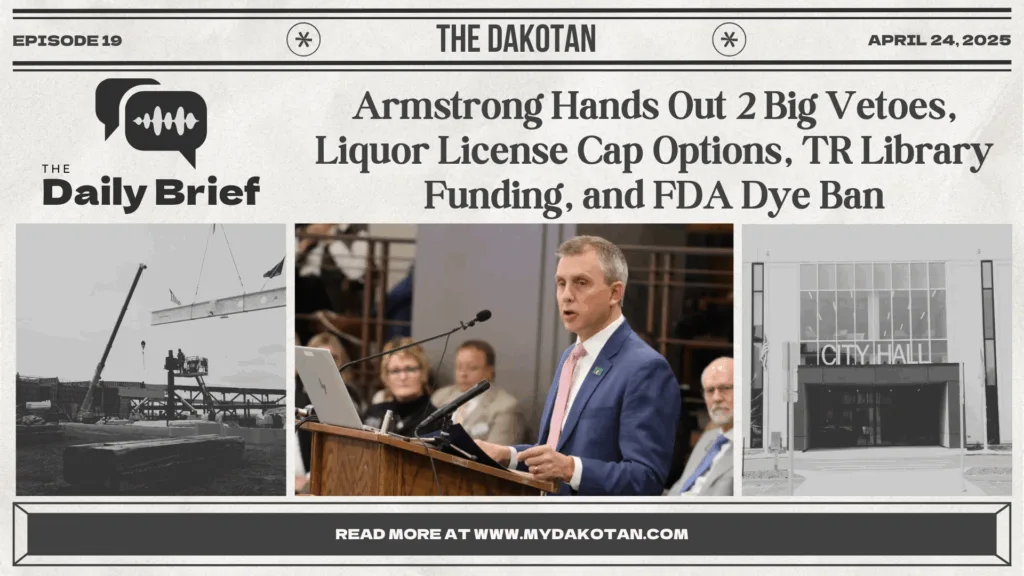

Gov. Kelly Armstrong vetoed a private school voucher bill Wednesday, saying it failed to provide meaningful school choice for most North Dakotans—especially in rural areas. While rejecting House Bill 1540, Armstrong signaled support for a broader education savings plan still under consideration.
Gov. Kelly Armstrong vetoed a bill aimed at restricting “sexually explicit” content in libraries, calling it an unworkable attempt at censorship that risks unintended consequences. The bill narrowly passed both chambers, making a veto override unlikely.
MINOT—The City Council is considering major reforms to Minot’s decades-old liquor license cap, with four options on the table—from maintaining the status quo to removing the cap entirely and compensating existing license holders. No decision has been made yet, but leaders say change is likely and are urging public input before a future vote.
The North Dakota House advanced a plan to add $50 million in matching funds and a $20 million loan for the Theodore Roosevelt Presidential Library, reviving debate over long-term taxpayer support for the $500 million project near Medora. Lawmakers remain split on whether the state should deepen its investment as the 2026 grand opening approaches.
During a Fargo roundtable hosted by Sen. John Hoeven, U.S. Agriculture Secretary Brooke Rollins heard North Dakota farm leaders express concern over USDA staff cuts, rising loan demand, and stalled farm bill progress. Rollins pledged disaster relief funds and new sugar tariffs, while farmers warned that federal loan access, trade, and specialty crop support are at risk.
The Trump administration is moving to phase out eight petroleum-based synthetic food dyes, citing health concerns and mounting pressure from states already banning the additives in schools and grocery stores. FDA officials hope to work voluntarily with food companies to eliminate dyes like Red 40 and Yellow 5 by the end of 2025, though critics say stronger regulation is needed to protect public health—especially for children.